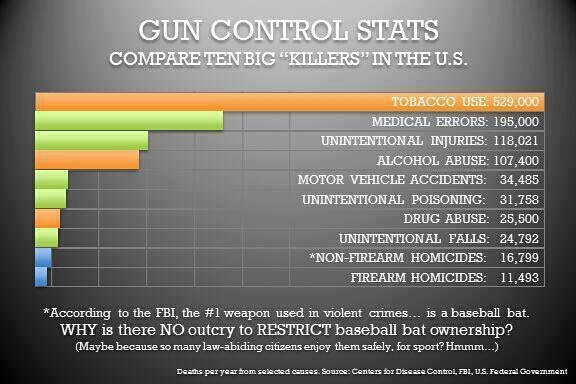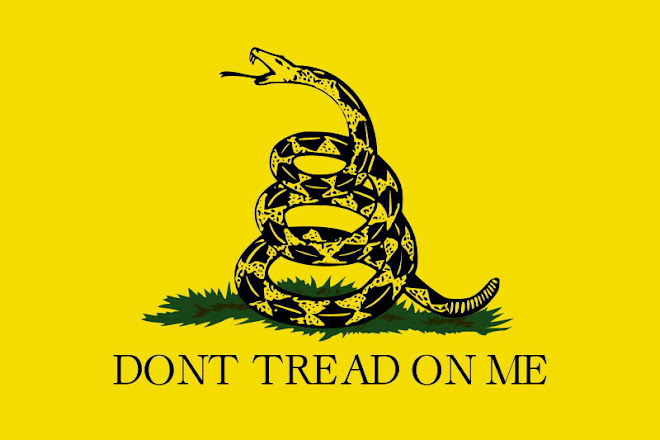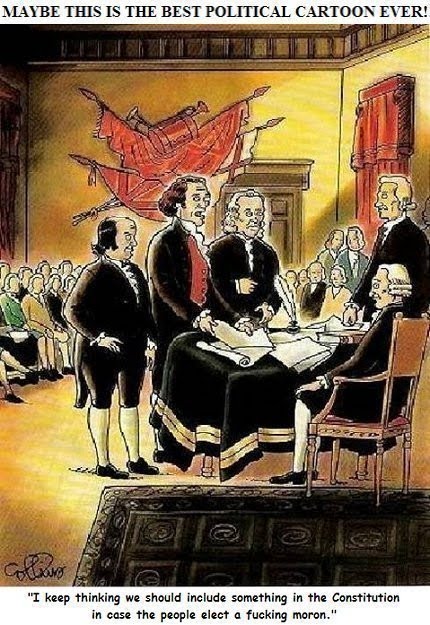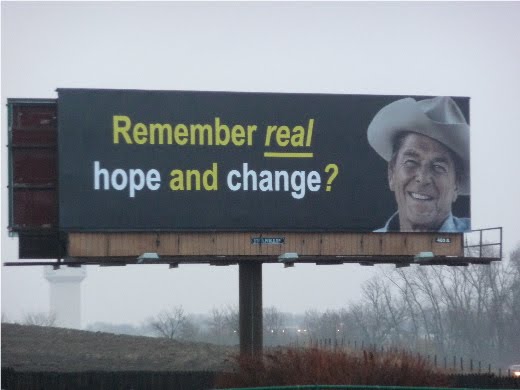Let's hope this guy's right!
-------------------------------------
Republican Senate majority likely on election day
Elections 2012 October 9, 2012
By: Dean Chambers of the Washington Examiner
A WBUR/MassINC poll released today shows Republican Senator Scott Brown leading 48 percent to 45 percent over Democratic challenger Elizabeth Warren in the Massachusetts senate race.
A new Mason-Dixon poll released today shows Republican Rick Berg and Democrat Heidi Heitkamp tied at 47 percent for the North Dakota senate seat.
Recent polling indicates Republican Deb Fischer leading former Democratic Senator Bob Kerrey in Nebraska.
Democrats are safe bets to win the open Maine senate seat via the candidacy of Independent former governor Angus King (who is widely expected to caucus with the Democrats as senator) and hold on to seats in Hawaii, Michigan, New Jersey, Washington state and West Virginia. Pennsylvania also leans to the Democrats. Those seats, and the senate seats not up for election this year, would give the Democrats 45 senate seats, and the Republicans 43 seats, leaving 12 other seats up for grabs. Those 12 seats, highlighted in this analysis, will decide the senate majority for the next session of Congress.
Florida: This race matches up incumbent Democrat Senator Bill Nelson with Congressman Connie Mack, the son of former Florida Republican Senator Connie Mack who was elected in 1988. This election seems a lot like the 1988 campaign when Mack's dad ran against a moderately liberal Congressman named Buddy MacKay for the seat and trailed in the polls for just about the entire campaign, but ran ads that said “Buddy you're a liberal.” One of the newspapers ran a headline “hey Buddy you're a senator” in a Dewey defeats Truman moment, but when the absentee ballots were counted days later, Mack had a narrow lead and won the seat. His son will do the same. Leans Republican.
Arizona: Republican Congressman Jeff Flake faces Democrat and former Surgeon General Richard Carmona. Arizona remains a solid Republican state and Flake is the stronger candidate in this race. This race is likely Republican.
Connecticut: After losing two years ago the state's other senate seat to Richard Blumenthal, who got caught lying about serving in Vietnam, Republican Linda McMahon hopes for better odds this year against Congressman Chris Murphy, the Democrat. The race will be close but McMahon will outspend Murphy and win the race for the Republicans.
Indiana: State Treasurer Richard Mourdock defeated Senator Richard Lugar in the primary this past year and faces Democrat Congressman Joe Donnelly. Indiana is still a strong Republican state and Mourdock should easily win this race. This one is likely Republican.
Massachusetts: This race is between Republican incumbent Senator Scott Brown, who won the special election in 2010 and Democrat nominee Elizabeth Warren. Brown faces two large challenges in his question for reelection: the heavily Democratic makeup of the state's electorate (48 percent Democrats to 12 percent Republicans) and the wide margin by which President Obama is leading in the state, despite it also being the home state of Republican presidential nominee Mitt Romney, the state's former governor. While Brown is personally more popular, Warren has effectively mobilized her base among Democrats who are strongly against the notion of Republicans gaining a majority in the senate. Brown has to win an enormously huge percentage of the independents voters, who make up about 40 percent of the state, to have a chance at winning this race. Democrats are much more strongly backing Warren than they did their 2010 nominee, state Attorney General Martha Coakley. The Real Clear Politics analysis sums up this race by saying, “Brown has done most everything right for a Republican in the Bay State, but in a presidential year even that might not be enough.” The key words there, other than Scott Brown doing everything right, is might not be enough. This race is a toss-up.
Missouri: Controversial incumbent Democrat Senator Claire McCaskill faces the equally controversial Republican Congressman Todd Akin in this race. McCaskill got caught flying chartered jets at taxpayer expense and called for the public to “take up pitchforks” against Republicans for opposing President Obama's legislative agenda in the Senate. Akin nearly destroyed his chances with his infamous “legitimate rape” gaffe. The safest bet one can make on this race, is that the winner of it will be surely the most vulnerable incumbent senator six years from now. As for the winner of this race, this year, the projection can only be that of toss-up.
Montana: Incumbent Democrat Senator Jon Tester, an upset winner six years ago, faces the state's only Congressman, Republican Denny Rehberg. Montana is a strongly Republican state and should reassert that leaning by sending Rehberg to Washington as senator. This state leans Republican.
Nevada: Republican Senator Dean Heller runs against Democratic Congresswoman Shelley Berkley in this contest. Nevada is currently a quite competitive “purple” state that used to be a strongly Republican state. Most of the polls have shown Heller leading and in a Republican leaning turned “purple” state that usually means a Republican win. This race leans Republican.
North Dakota: Congressman Republican Rick Berg seeks a promotion to the senate, and runs against state Attorney General Democrat Heidi Heitkamp. This is a very heavily Republican state that Romney will easily win and help bring out enough votes to help Berg get elected in a much closer race. This state leans Republican.
Ohio: This state is most likely to be the center of gravity in the presidential race this year and the winner of this state for the presidency might also carry the party's nominee in this race to victory in the senate race. If Obama wins Ohio, expect incumbent Democrat Senator Sherrod Brown to hold on to his seat. If Mitt Romney wins in this state, it is will be more likely that Republican state Treasurer Josh Mandel will be elected senator. Recent polls show the state trending toward Romney and the senate race has been tied in most polls. This race leans Republican.
Virginia: This race is a battle between former Democratic governor Tim Kaine and former governor and senator, Republican nominee George Allen. This race has been all but tied for the entire election season and will be very close. The winner of this state in the presidential election might help one of the candidates win this race, but that is not assured. This race is a toss-up.
Wisconsin: This state elected Republicans Ron Johnson as senator and Scott Walker as governor two years ago and is becoming more Republican. But this year's senate race has been quite close between Democratic nominee, Congresswoman Tammy Baldwin and former Republican Governor Tommy Thompson. This state is too close to call for this senate seat as well as in the presidential race. This race is a toss-up.
Of those 12 senate races, eight are projected to be won by the Republican nominees and four of them are toss-ups. This leads to 51 Republican senators, 45 Democratic senators and four seats too close to call. For the Democrats to hold on to a majority, which seems highly unlikely, they would need to sweep the toss-up races and win at least one of the races listed above as leans Republican. That is not likely. The more likely scenario is the Republican majority being made up of 53 or 54 senators in the next session of Congress.
The polls got UnSkewed, now the media gets it too -- UnSkewedMedia.com.
skip to main |
skip to sidebar

And tell your friends too!!!

Obama was an Alinsky trainer at ACORN
WRD began in January 2010 at the height of the Obamacare debacle. Since then, WRD banded with a group of like-minded individuals to form the Gadsden Group, influencing thought by challenging bias at the Milwaukee Journal Sentinel, volunteering for Republican candidates, participating in numerous campaign events, networking with other groups of concerned citizens, and gaining a foothold in social media on Twitter. Our "Letter to to the Left" after Governor Walker's convincing win in the June 2012 recall election went viral, and we decided to officially expand this site to include the Gadsden Group name.
We hope this site will be a one-stop shop for great websites, articles, polls, conservative commentary, and more. 2010 was the year of the Republican comeback, and 2012 was off to a great start with the convincing win of Scott Walker, but we have much work to do after the Romney and Thompson defeats, and it's up to all of us to make it happen. Share with friends, convince your kids, do your part to get our great country back! Thanks for visiting our site! Wisconsin Republican Dad and everyone in the Gadsden Group



"I also am a total loser"

3 victories in 4 year, this is uncharted water. Take that you lefties!!!!

wish I had thought of this one!



Send your donation to the Trotsky/Alinsky Center for the Insane


Thanks NSA!



Yuck!






One of the worst things I've ever seen on social media, and that's saying something. Disgusting.

What's the penalty for treason again?






"I go skeetshooting all the time" LOL







Benghazi-Gate is the end of O's political career whether he wins re-election or not. Let's make it not.


"Thanks for ruining our 20th anniversary meanie!"



Dear Leader violates the Flag Code. He should be arrested for putting his image on the flag while being a sitting POTUS. People have died for our Flag. These $35 flags from obama.com are a National disgrace.


Try putting this one on your Dane County SUV!!!

Those guys are working overtime over there

What kind of a vile, despicable person drives this car? (A Hyundai in Detroit as well)


This Massachusetts billboard gets it right!

Thank you Clint Eastwood for the Empty Chair!!! Great stuff!

The day the people were forced to take back their country


Romney for 8, Ryan for 8, Walker for 8, Rubio for 8. Then we die old & happy.



The Wisconsin Boys welcome the next POTUS to WI, the state that saved a country!

What could possibly get between you and your doctor?

Your kids all thank you!





The 1770's flag has made a huge comeback, and for good reason...



"he even writes lefty"

Another great campaign slogan: "Transparency!"

Those marketing folks are working overtime over there...

Please stay in the right lane...

Don't let the Takers defeat the Makers: Defeat Obummer in 2012

I'm kinda diggin' the new slogan: transparency finally?

The Democracy will ceast to exist when you take away from those who are willing to work and give to those who would not.
--Thomas Jefferson

"available at fine clothiers and wherever English is Spoken"

"Republicans believe every day is the 4th of July, Democrats believe every day is April 15th."

Close your eyes...breathe deeply...imagine...

"Thomas, I really think we ought to include this???"

"or what lefties refer to as, those pesky little first 10 amendments that prevent us from stomping on the great unwashed"

Ronaldus Magnus, on a billboard in the Twin Cities
Media Trackers
MacIver Institute
Wisconsin Republican Dad's favorite links
- Breitbart
- American Thinker
- Americans For Prosperity
- Bernie Goldberg
- Bill O'Reilly
- Citizens for Responsible Government
- Dick Morris
- Drudge Report
- Fox News
- Freedom Works
- Grandsons of Liberty (WI)
- Heritage Foundation
- Hot Air
- Learn the Truth About Obama's Past
- Mark Belling
- Mark Levin
- Michelle Malkin
- Milwaukee Journal Sentinel
- National Review
- Paul Ryan
- Politico
- Real Clear Politics
- Red State
- Right Wisconsin
- Ron Johnson
- Scott Walker
- The Daily Caller
- Track liberal bias at the New York Times
- USA Today
- Vicki McKenna
- WISN Common Sense Central
- Where the lefties hang out
- Young America's Foundation
Follow us on Twitter @Gadsden_Group

And tell your friends too!!!
If you understand Alinsky, you understand Leftists

Obama was an Alinsky trainer at ACORN
Welcome to our blog!
WRD began in January 2010 at the height of the Obamacare debacle. Since then, WRD banded with a group of like-minded individuals to form the Gadsden Group, influencing thought by challenging bias at the Milwaukee Journal Sentinel, volunteering for Republican candidates, participating in numerous campaign events, networking with other groups of concerned citizens, and gaining a foothold in social media on Twitter. Our "Letter to to the Left" after Governor Walker's convincing win in the June 2012 recall election went viral, and we decided to officially expand this site to include the Gadsden Group name.
We hope this site will be a one-stop shop for great websites, articles, polls, conservative commentary, and more. 2010 was the year of the Republican comeback, and 2012 was off to a great start with the convincing win of Scott Walker, but we have much work to do after the Romney and Thompson defeats, and it's up to all of us to make it happen. Share with friends, convince your kids, do your part to get our great country back! Thanks for visiting our site! Wisconsin Republican Dad and everyone in the Gadsden Group
Total Pageviews
Blog Archive
About Us

- Wisconsin Republican Dad
- WRD: I'm just a dad and husband who's very worried about the direction this country is going, and decided it was time I got involved. I believe in fiscal restraint, personal responsibility, a much smaller goverment, fewer government programs, agencies, and entitlements, strong national defense, and justice for criminals. I want our borders strengthened, tort reform, a balanced budget, and deficit reduction. I believe in Constructionist judges, not liberals who legislate from the bench. I'm pro gun, I'm for expanding nuclear power and offshore drilling. By default, that makes me a conservative Republican. The liberals are killing this country, and worse, they know it. Their desire to be liked, to be seen as champions of the poor, while they continue to grow the welfare state, bothers me greatly. Because arrogance is the worst of human traits, their condescension (that means you Russ Feingold) towards middle America makes me want to scream. So I am... Gadsden Group: We are a group of like-minded individuals based in Waukesha and Milwaukee counties (WI). We're sick of liberals running our state into the ground, so we decided to make a stand. So far, so good...
Very, very true...

Liberal tears....

"I also am a total loser"
We won! Again!!!

3 victories in 4 year, this is uncharted water. Take that you lefties!!!!
This says it all perfectly

wish I had thought of this one!
Leftists...

Differences

Please, can you help us find a cure?

Send your donation to the Trotsky/Alinsky Center for the Insane
The official definition of liberal

Obama's Desktop

Thanks NSA!
Sounds about right...

Sounds about Right

Please, no more desecration of the White House from these Hippies

Yuck!
Perhaps the best t-shirt evah!

2A

Here's one man who can save our counrty

That liberal lion, John F. Kennedy

Welcome to Wisconsin

The sick freak polymath22 posted this fake image of murdered Martin Richard

One of the worst things I've ever seen on social media, and that's saying something. Disgusting.
TRAITORS! TREASON!!!

What's the penalty for treason again?

What we're up against, #5,678,890




Our Idiot in Chief using his Prompter

"I go skeetshooting all the time" LOL
"What Difference Does it Make?"



Ronald Reagan (deceased) summarizes the Newtown killings
"We must reject the idea that every time a law's broken, society is guilty rather than the lawbreaker." -
--Ronald Reagan
--Ronald Reagan
And it begins...God Help us

Watching Americans die in Benghazi, and not assisting, leads to:

What have we done...

Oct. 25th, 2012 cover, New York Post

Benghazi-Gate is the end of O's political career whether he wins re-election or not. Let's make it not.
Words spoken were never truer...and he said them!!!

If looks could kill...

"Thanks for ruining our 20th anniversary meanie!"
DEFICIT!

Obamanation

This flag desecrator must be stopped NOW!!!

Dear Leader violates the Flag Code. He should be arrested for putting his image on the flag while being a sitting POTUS. People have died for our Flag. These $35 flags from obama.com are a National disgrace.

Now that's funny!

Try putting this one on your Dane County SUV!!!
The New Obama Slogan

Those guys are working overtime over there
My buddy Al G. from near Detroit took this photo...

What kind of a vile, despicable person drives this car? (A Hyundai in Detroit as well)

Thank goodness we're all computer-savvy!

This Massachusetts billboard gets it right!
The best empty chair photo I've seen so far!

Thank you Clint Eastwood for the Empty Chair!!! Great stuff!
June 28, 2012

The day the people were forced to take back their country
I don't care who you are, that's funny!

The great Paul Ryan

Romney for 8, Ryan for 8, Walker for 8, Rubio for 8. Then we die old & happy.

This is perfect for Andrea Mitchell, since she already is a dog!

June 18, 2012

The Wisconsin Boys welcome the next POTUS to WI, the state that saved a country!
Obamacare

What could possibly get between you and your doctor?
Quote that pretty much says it all
"As an American, I am not so shocked that Obama was given the Nobel Peace Prize without any accomplishments to his name, but that America gave him the White House based on the same credentials." --Newt Gingrich
Congratulations to all the 54% ers!

Your kids all thank you!

Got it Leftists? Understand? I didn't think so...




The 1770's flag has made a huge comeback, and for good reason...
"Here's to hoping this isn't your kids' teacher"


Obama's New Bill of Rights

"he even writes lefty"
Obama Marketing team is hard at it!

Another great campaign slogan: "Transparency!"
New campaign slogan for the Obummer juggernaut

Those marketing folks are working overtime over there...
Let's drive a little more carefully this time, OK?

Please stay in the right lane...

Don't let the Takers defeat the Makers: Defeat Obummer in 2012

I'm kinda diggin' the new slogan: transparency finally?

Thomas Jefferson, not exactly a fan of the welfare (ie. liberal) state
The Democracy will ceast to exist when you take away from those who are willing to work and give to those who would not.
--Thomas Jefferson
Scott Walker's Phone # if needed
Governor Walker's office # is 608-266-1212. Please feel free to call him and thank him for everything he has done, if you have questions, anything at all. This is what transparency looks like!!!!
Dads Against Daughters Dating Democrats

"available at fine clothiers and wherever English is Spoken"
Ronald Reagan

"Republicans believe every day is the 4th of July, Democrats believe every day is April 15th."
www.thoseshirts.com

Close your eyes...breathe deeply...imagine...
A clause that didn't make the final draft

"Thomas, I really think we ought to include this???"
The Bill of Rights

"or what lefties refer to as, those pesky little first 10 amendments that prevent us from stomping on the great unwashed"
I wonder what he's thinking now???

Ronaldus Magnus, on a billboard in the Twin Cities